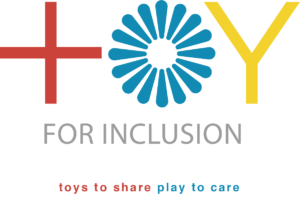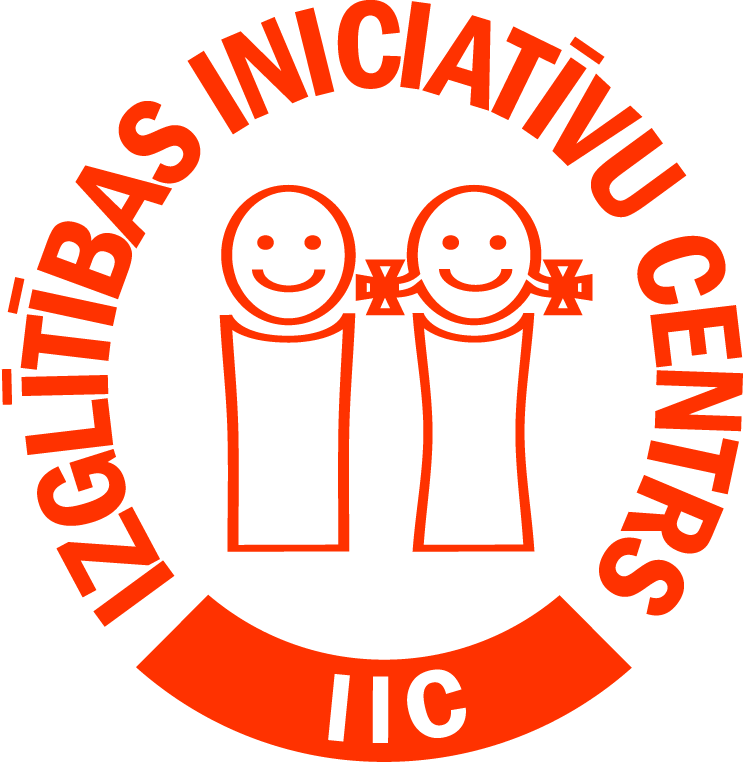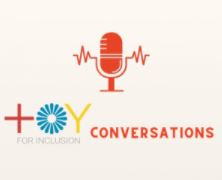
Overall goal: The goal of the proposed project, titled ‘TOY to Share: Play to Care’ is to scale up the ‘TOY for Inclusion’ approach, broadening its target beneficiaries to include all hard to reach young children, such as those from migrant and ethnic minority backgrounds. These are the children who are currently least likely to have access to formal ECEC services and therefore, more likely to experience problems during the transition from home to school at age 6.
Project homepage: www.toy4inclusion.eu
The methodology we intend to adopt for the upscaling process consists of the following complementing components:
- Assessment of local needs and desires to design local responses in the form of non-formal community-based ECEC initiatives (Local Action Teams);
- Capacity building of professionals (peer-training and mentoring trajectory for partner organisations and Local Action Teams);
- Participatory design, implementation, monitoring and evaluation of non-formal community-based ECEC initiatives;
- Thorough systematic impact evaluation of the implemented ECEC initiatives;
- Capacity building of policy makers and impact at systemic and policy level (training of staff of local authorities for the embedding of the TOY for Inclusion approach in local policy and practice);
- Knowledge sharing and dissemination among local, national and international stakeholders and policy makers (campaign and general dissemination).
The desired impact of TOY to Share: Play to Care is:
- Increased access of ‘harder to reach’ children and especially migrant and ethnic minority children (0-6) to inclusive and quality ECEC settings through the upscaling of the “TOY for Inclusion approach”.
- Increased knowledge and skills on how to implement effective community based inclusive ECEC services, amongst educators, leaders of educational institutions, practitioners of the health sector, carers and local policy makers.
- Inclusive and quality community-based ECEC services are embedded in local educational policies.
Main outputs are:
• 14 ECEC non-formal ECEC initiatives /Play Hubs in 7 countries, documented through blogposts, video, reports
• 14 active cross-sectoral networks of professionals in inclusive ECEC operating at a local level
• An impact evaluation report and recommendations
• A set of products for the advocacy campaign: story post cards; pop museum; multi-lingual infographic, website with data base of resources; two international events and three events per country.
TOY for Inclusion is coordinated by International Child Development Initiatives – ICDI (NL).
Other Partners are:
International Step-by-Step Association – ISSA (NL) and six members of the Romani Early Years Network – REYN:
Developmental Research Center for Pedagogical Initiatives Step by Step – DRCPI SBS (Slovenia),
Open Academy Step by Step – OASS (Croatia),
Centre for Education Initiatives – CEI (Latvia),
Wide Open School – WOS (Slovakia),
Associazione 21 Luglio (Italy),
Partners Hungary,
Centre for Early Childhood Research at the Dublin City University Institute of Education (Ireland),
The Federation of Mediterranean Roma Associations – Akromfed (Turkey).
Erasmus + Programme (KA3 Social Inclusion), Open Society Foundations
The European Commission support for the production of this publication does not constitute an endorsement of the contents which reflects the views only of the authors, and the Commission cannot be held responsible for any use which may be made of the information contained therein.


